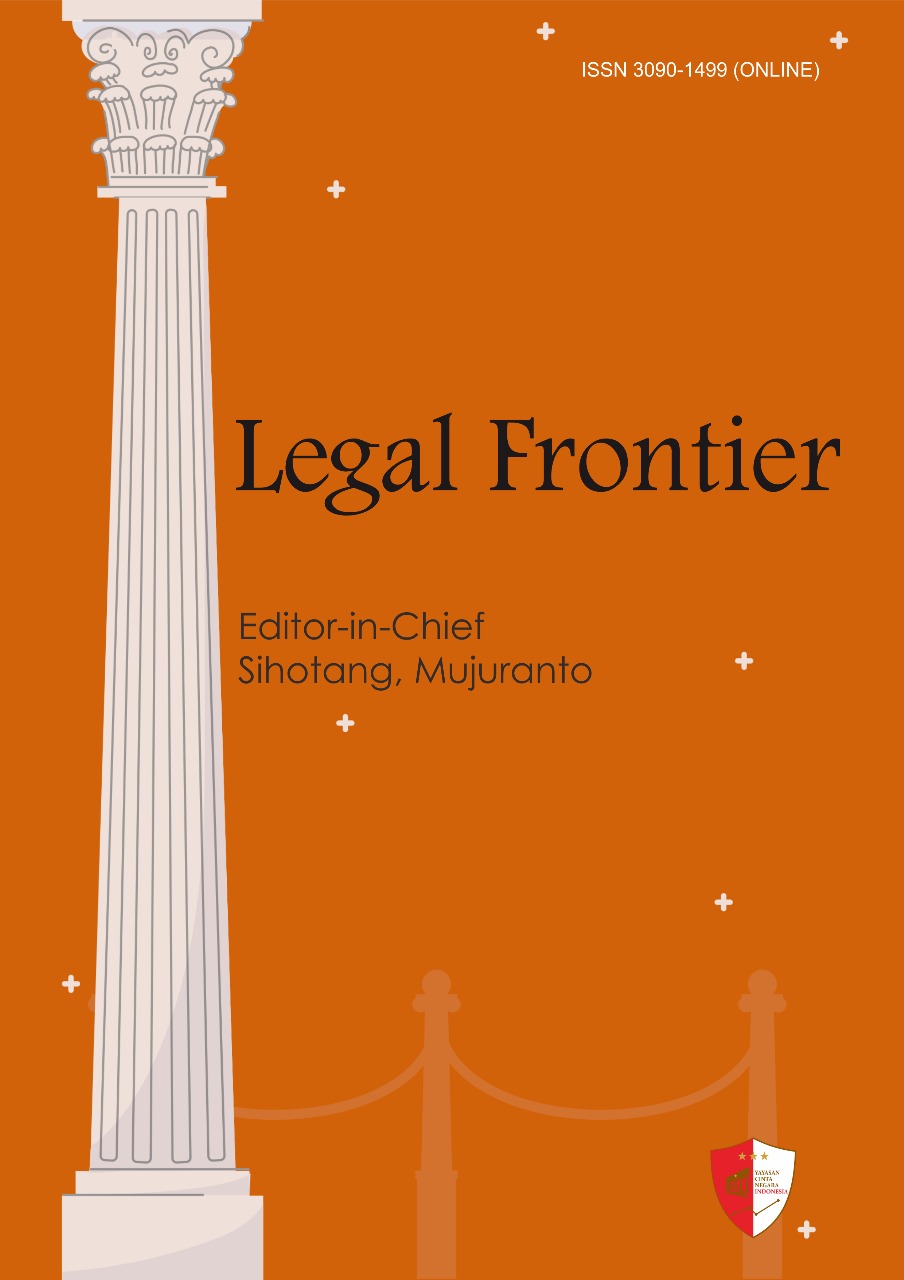Harmonization of Islamic Law, Customary Law, and National Law in Safeguarding the Rights of Indigenous Peoples
Keywords:
Customary Law, Harmonization, Indigenous Peoples' Rights, Islamic Law, National LawAbstract
This study explores the harmonization of Islamic law, customary law (adat), and national law in the context of protecting the rights of indigenous peoples in Indonesia. As a country with legal pluralism, Indonesia accommodates multiple legal systems that coexist and often intersect. Customary law, deeply rooted in indigenous communities, plays a vital role in regulating social life and managing communal resources. However, its recognition and implementation within the national legal framework remain inconsistent. Islamic law, as one of the moral and legal foundations embraced by the majority of the population, offers universal principles of justice, equity, and protection of rights, including those of marginalized groups. This research analyzes how Islamic legal values can serve as a bridge between state law and adat law to ensure comprehensive protection for indigenous communities. Using a normative-juridical approach, the study reviews legislation, judicial decisions, and scholarly interpretations to assess the compatibility and potential conflicts among these legal systems. The findings indicate that while overlaps exist particularly in principles of communal ownership, justice, and mutual respect practical harmonization is often hindered by regulatory ambiguities and lack of political will. The study recommends the formulation of an integrated legal framework that respects the autonomy of indigenous law, aligns with Islamic principles of maslahah (public interest), and complies with constitutional protections. Such harmonization not only strengthens legal certainty but also ensures that indigenous peoples can fully exercise their rights without discrimination or marginalization. This research contributes to the discourse on legal pluralism and social justice in multicultural societies
References
Alting, H. (2010). Hukum Adat Indonesia dalam Sistem Hukum Nasional. Yogyakarta: LaksBang Pressindo.
Anaya, S. J. (2004). Indigenous Peoples in International Law (2nd ed.). Oxford: Oxford University Press.
Bedner, A., & Arizona, Y. (2019). Adat in Indonesian Land Law: A Promise for the Future or a Dead End? Bijdragen tot de Taal-, Land- en Volkenkunde, 175(2–3), 188–213.
Bohannan, P. (1965). The Differing Realms of the Law. London: Oxford University Press.
Butt, S. (2014). Traditional Land Rights Before the Indonesian Constitutional Court. Law, Environment and Development Journal, 10(1), 1–15.
Davidson, J. S., & Henley, D. (2007). The Revival of Tradition in Indonesian Politics. London: Routledge.
Departemen Kehakiman RI. (1994). Pengakuan dan Perlindungan terhadap Hak-Hak Masyarakat Hukum Adat. Jakarta: BPHN.
Djaenuri, A. (2013). Pengakuan dan Perlindungan Masyarakat Hukum Adat dalam Negara Hukum Indonesia. Bandung: Mandar Maju.
Erb, M., Sulistyanto, P., & Faucher, C. (2005). Regionalism in Post- Suharto Indonesia London: RoutledgeCurzon.
Fitzpatrick, D. (2008). Evolution and Chaos in Property Rights Systems: The Third World Tragedy of Contested Access. Yale Law Journal, 115(5), 996–1048.
Hall, D. J., Hirsch, P., & Li, T. M. (2011). Powers of Exclusion: Land Dilemmas in Southeast Asia. Honolulu: University of Hawai‘i Press.
Heryani, E., & Grant, C. (2004). Legal Framework for Environmental Management in Indonesia. Jakarta: ICEL.
Hooker, M. B. (1975). Legal Pluralism: An Introduction to Colonial and Neo-Colonial Laws. Oxford: Clarendon Press.
Hooker, M. B. (2008). Indonesian Syariah: Defining a National School of Islamic Law. Singapore: ISEAS.
Idris, M. (2020). Harmonisasi Hukum Adat dan Hukum Nasional dalam Pengakuan Hak Komunal. Jurnal Hukum IUS, 8(3), 451–468.
Indrati, M. P. (2007). Ilmu Perundang-Undangan: Dasar-Dasar dan Pembentukannya. Yogyakarta: Kanisius.
Jariah, R. (2019). Hukum Adat dalam Perspektif Hak Asasi Masyarakat Adat. Malang: Setara Press.
Kartodirdjo, S. (1992). Riot, Rebellion and Revolt: Some Problems of Historical Analysis. Yogyakarta: Gadjah Mada University Press.
Latif, Y. (2011). Negara Paripurna: Historisitas, Rasionalitas, dan Aktualitas Pancasila. Jakarta: Gramedia.
Lucas, A., & Warren, C. (2013). The Land, the Law and the People. Asia Pacific Journal of Anthropology, 14(5), 437–455.
Macdonald, C., & Panggabean, R. (2008). Legal Pluralism in Indonesia. Journal of Legal Pluralism and Unofficial Law, 60, 95–123.
Mahendra, I. G. A. A. O. (2016). Perlindungan Hukum Hak Ulayat Masyarakat Adat. Jurnal Magister Hukum Udayana, 5(2), 234–249.
Marzuki, P. M. (2005). Pengantar Ilmu Hukum. Jakarta: Kencana.
Moniaga, S. (2007). From Bumiputera to Masyarakat Adat: A Long and Confusing Journey. In Davidson & Henley (Eds.), The Revival of Tradition in Indonesian Politics. London: Routledge.
Nawawi, H. (2014). Hukum Adat dan Hak-Hak Komunal. Jakarta: Rajawali Pers.
Nurmala, F. (2021). Implementasi Pengakuan Masyarakat Adat Berdasarkan Putusan MK No. 35/PUU-X/2012. Jurnal Yustisiabel, 6(2), 115–130.
Pangalila, D. R. (2018). Analisis Yuridis Perlindungan Masyarakat Adat dalam Sistem Hukum Nasional. Lex Jurnalica, 15(2), 157–172.
Rahardjo, S. (2006). Hukum Progresif: Hukum untuk Manusia. Jakarta: Kompas.
Safitri, M. (2010). Forest Tenure Recognition in Indonesia. RECOFTC Discussion Paper. Bangkok: RECOFTC.
Sembiring, M. (2015). Hukum dan Kearifan Lokal: Menjaga Kehidupan Masyarakat Adat. Yogyakarta: Pustaka Pelajar
Downloads
Published
Issue
Section
License
Copyright (c) 2025 Muhammadong (Author)

This work is licensed under a Creative Commons Attribution-NonCommercial 4.0 International License.






